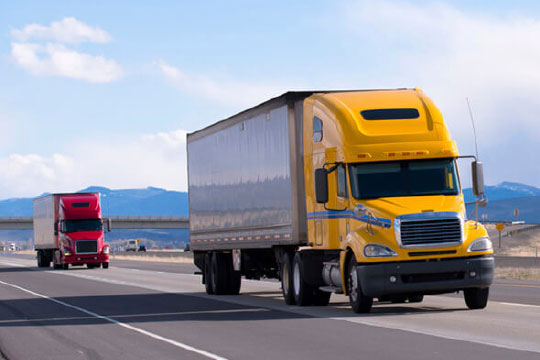Introduction
Truck accident cases are complex legal battles that can significantly impact the lives of victims and their families. Given the sheer size and weight of commercial trucks, accidents involving big rigs can result in devastating injuries and substantial property damage.
In such cases, the role of evidence is paramount. A strong evidential foundation can make the difference between winning and losing a case. This article explores the various types of evidence that are crucial in truck accident cases, the role of experienced truck accident attorneys, and how victims can maximize their chances of receiving just compensation.
Understanding Truck Accident Cases
Before delving into the types of evidence needed, it is essential to understand the nature of truck accident cases. They typically involve commercial vehicles operated by professional drivers who are held to higher standards than regular motorists. As a result, the legal implications in these cases can be quite different.
Here are key components of truck accident cases:
- Liability: Establishing who is at fault is critical. This can involve the truck driver, the trucking company, vehicle manufacturers, or even third parties. Injuries: The extent of injuries is significant, as it influences the claims for damages. Insurance: Understanding the insurance policies involved is essential for navigating compensation. Regulations: Commercial trucking is heavily regulated, and violations can impact liability.

The Importance of Evidence
In truck accident cases, evidence serves several purposes. It helps establish liability, supports claims of damages, and provides a basis for negotiations. Without concrete evidence, claims can be dismissed, or the compensation awarded can be significantly reduced.
Types of Evidence in Truck Accident Cases
Various types of evidence are critical in building a successful truck accident case. Each type plays a significant role in substantiating claims and ensuring victims receive the necessary compensation. Below are the primary forms of evidence used in these cases:
1. Accident Scene Evidence
Evidence collected at the accident scene is often the most compelling in establishing fault. This can include:
- Photographs: Images showing the damage to vehicles, road conditions, and relevant signage. Witness Statements: Eyewitness accounts can provide insights into the events leading up to the accident. Physical Evidence: Debris from the accident, skid marks, or even vehicle parts can help reconstruct the accident.
2. Police Reports
After a truck File a truck accident claim accident, a police report is usually generated, documenting the incident. This report often includes:
- Findings: A summary of evidence that law enforcement observed. Statements: Accounts from the drivers and any witnesses. Traffic Citations: If the truck driver was cited for a violation, this can significantly impact liability.
3. Driver Logs and Records
Truck drivers are required to maintain logs of their hours of service to ensure compliance with federal regulations. These records can provide crucial information about:
- Driving Hours: Details on whether the driver was fatigued at the time of the accident. Pre-Trip Inspections: Maintenance logs can indicate whether the truck was adequately maintained.
4. Electronic Logging Devices (ELDs)
Many commercial trucks are equipped with electronic logging devices that track driving patterns. ELDs can provide detailed information regarding:
- Speed: Data on the truck's speed leading up to the accident. Braking Patterns: This can indicate if the truck driver was attempting to brake or evade a collision.
5. Expert Testimony
In complex truck accident cases, expert witnesses can provide valuable insights. Common experts include:
- Accident Reconstruction Experts: They can analyze the physical evidence and provide opinions on how the accident occurred. Medical Experts: These experts help in establishing the nature and extent of injuries suffered.
How a Big Rig Lawyer Can Help
Engaging a qualified big rig lawyer can exponentially improve the chances of success in truck accident cases. Here’s how these legal professionals can assist:
- Case Evaluation: Assessing the viability of the case and the potential legal strategies. Evidence Gathering: Ensuring all critical evidence is collected promptly and adequately stored. Negotiation Skills: Negotiating with insurance companies on behalf of the victim to secure fair compensation. Trial Representation: If necessary, representing the victim in court to present a compelling case.
Maximizing Your Chances of Success
To maximize your chances of winning a truck accident case, consider the following steps:
- Document Everything: Keep meticulous records of all documents related to the accident, including medical bills and correspondence with insurers. Seek Medical Attention: Even if injuries seem minor, a medical evaluation is essential for documenting injuries. Contact a Truck Accident Attorney: The sooner you contact an attorney, the better they can assist you in building your case.
Conclusion
In summary, the role of evidence in winning truck accident cases cannot be overstated. From physical evidence at the scene to truck accident lawsuit representation expert testimony, every piece of evidence is vital to establishing liability and securing compensation for victims. Engaging a skilled big rig lawyer can significantly increase the likelihood of a successful outcome.
By understanding the importance of various types of evidence and working with experienced truck accident attorneys, victims can navigate the complexities of truck accident cases more effectively and achieve justice.